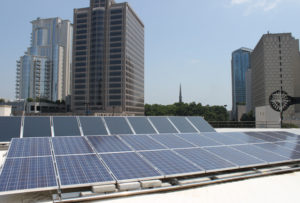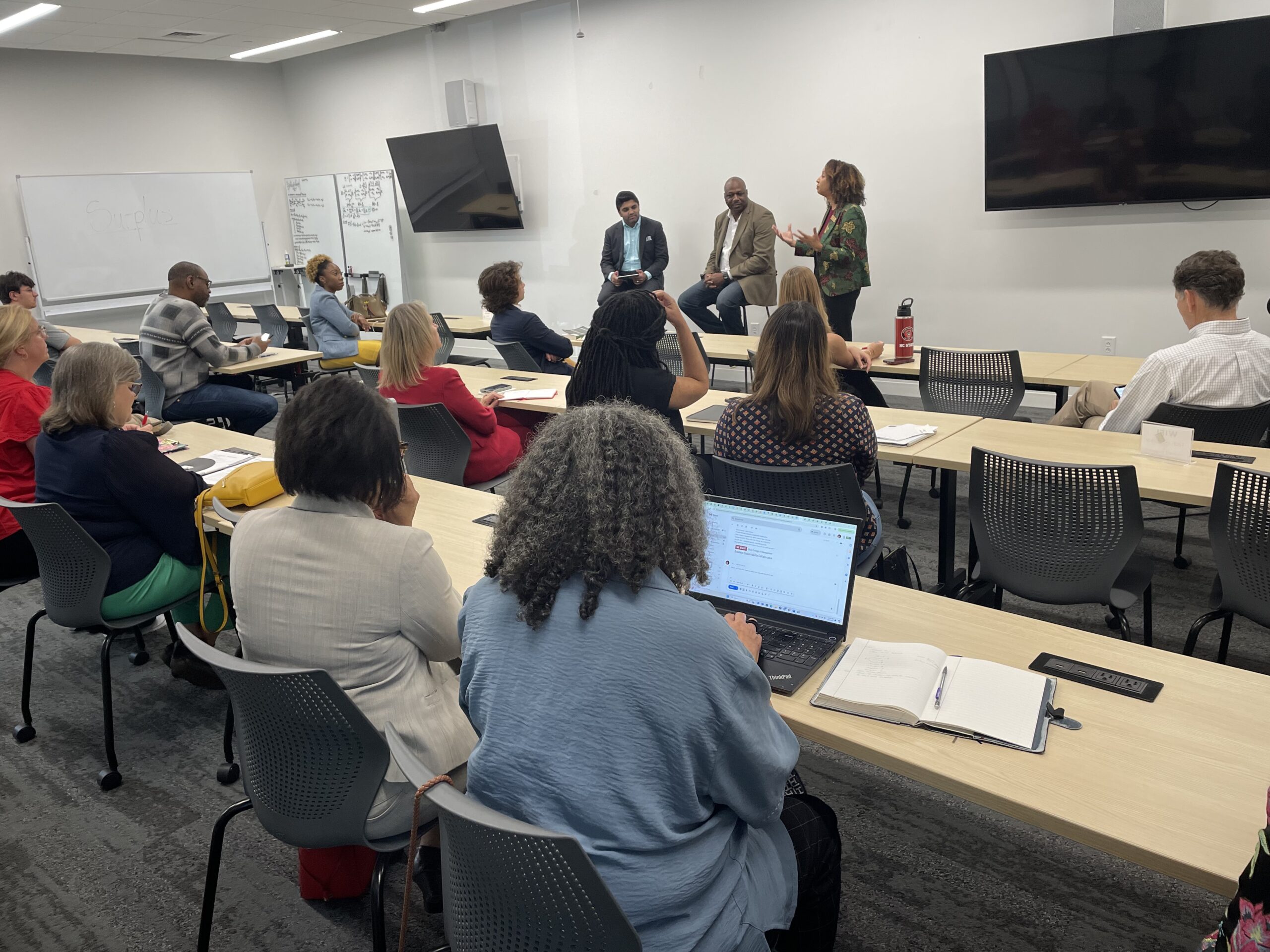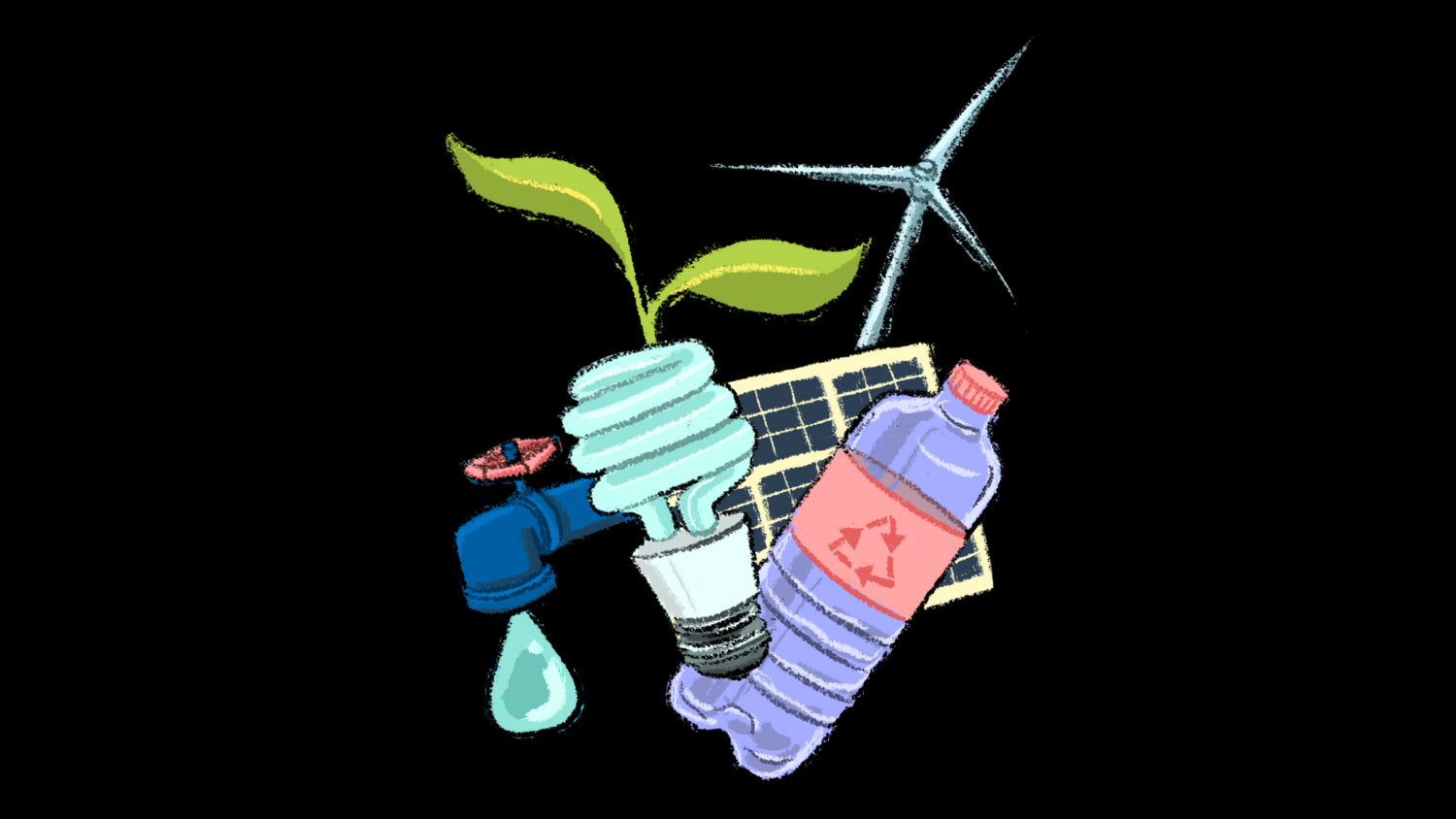Why Sustainability is Good for North Carolina’s Economy

by Katie Kross
In its simplest definition, sustainability—balancing the three pillars of economic, social, and environmental interests—is a hard-not-to-love concept. Who among us doesn’t want a good stable job, a strong and safe community, a comfortable quality of life, and clean air and water for ourselves and generations to come?
Of course, it’s never quite that simple. In practice, sustainability can be a maddeningly complex amalgam of issues, actors, and agendas. Everything from local food to landfill gas gets thrown in the sustainability bucket at times. Communities, government leaders, policy makers, and businesses all have various takes on what sustainability means and what issues are at the top of the list.
Further, sustainability’s multiple goals can often be in conflict with each other. The balance of economic, social, and environmental concerns is easy enough when goals align—for instance, when a factory’s recycling efforts reduce its waste disposal costs and its environmental impacts—but it’s harder when decisions require tradeoffs between end goals. Organically grown food may be better for our health and for the environment but worse on our pocketbooks, for instance.
However, we can’t let the complexity of the issues at hand and the competing agendas distract us from the fundamental principles of sustainability. In North Carolina, we need a view to advance long-term economic growth and prosperity while preserving the assets—people, economic, and environmental—that we as a state possess. Ethical and emotional reasons aside, there is a pragmatic case for conserving these assets: we’ll need to employ them in service of our needs for many years to come. As North Carolina’s population continues to grow, we need to plan now for how we will serve a larger and larger population with the water, air, land, oceanic, and ecosystem resources that we have.
REAL BENEFITS TO NC
Sustainability is not just a “nice to have” abstraction, but a fundamentally important driver of economic prosperity for North Carolina. Here are five ways sustainability contributes to our economy:
- Sustainable communities are attractive to employers seeking to relocate or expand to NC. Siemens Corporation and Sierra Nevada are two examples. Employees want to live in communities that have access to green space, bikeways, public transportation, farmer’s markets, and other amenities that balance people and nature with development and infrastructure.
- Sustainability can help make local communities more resilient and less exposed to global market swings by diversifying economic bases and integrating more local production and sourcing.
- Sustainability-related industries create jobs directly as industries like green building materials, renewable energy, clean technology, and organic food continue to grow. The Brookings Institute estimates that between 2003 and 2010, North Carolina added 26,101 jobs in what it termed “clean economy” sector—a 6% growth rate.
- Sustainability strategies can make NC companies more globally competitive. Management consulting firm McKinsey & Co. advises business executives: “Our recently completed research on the supply and demand outlook for energy, food, steel, and water suggests that without a step change in resource productivity and a technology enhanced expansion of supply, the world could be entering an era of high and volatile resource prices. Nothing less than a resource revolution is needed.” (McKinsey Quarterly, 2012)
- Sustainability practices can open business opportunities with customers. Walmart, for example, purchases from more than 1,800 suppliers in NC. This year, the retail giant began rating its suppliers’ sustainability efforts and will start incorporating that information into its buying decisions. Military procurement contracts have also begun incorporating suppliers’ sustainability considerations.
SUSTAINABILITY IS NOT NEW

Sustainability is not a new concept; in fact, it is a good old-fashioned conservative ideal. The values of economy, efficiency, service to one’s neighbors and community, innovation, and resource stewardship are not partisan ideals—they are American ones. They apply to the way we use our environmental resources as well as our economic resources, something that we all in North Carolina benefit from.
What’s important is that we don’t let the terminology and the complexity of sustainability distract us from the opportunity at hand. Projects that make our homes, our businesses, and our communities more efficient, more competitive, more engaging, and more inclusive only make North Carolina a stronger state.
- Categories:


